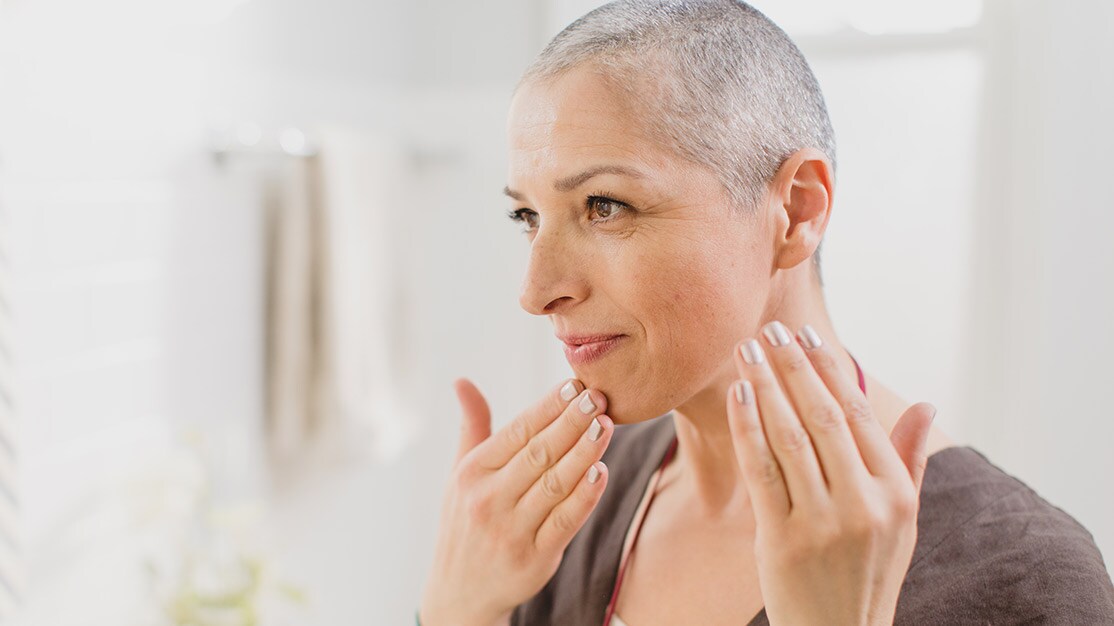5 Sun Protection Tips During Chemotherapy or Radiation Therapy

Everyone should take steps to guard themselves from the sun.
The sun's harmful ultraviolet (UV) rays can lead to short-term discomfort and long-term consequences. However, if you have cancer, note that certain treatments for cancer can affect your skin, making sun protection even more important. Learn how to defend yourself from the sun during chemotherapy and radiation therapy.
Cancer treatments and the sun
Certain types of chemotherapy can make skin more sensitive to the sun. This means your skin can burn more easily and quickly than it did before you started treatment. What's more, intense sun exposure may further weaken your already compromised immune system, making it harder for your body to fight off infections.
With radiation therapy, it's common to experience side effects on the areas of your skin where you received treatment. In fact, the affected areas of skin may resemble sunburn. Your skin may appear pink or red, it may feel itchy, dry, tight or sore, and it may even blister or peel. You may experience these side effects during and for weeks after you finish radiation. Note that these affected areas of skin will be especially sensitive to the sun during the first year after treatment.
Be sure to follow your health care provider's advice for sun protection during chemotherapy and radiation. These tips can also help protect your skin from the sun:
- Use sunscreen with a sun protection factor (SPF) of 30 or higher. Choose a sunscreen that is broad-spectrum, meaning it defends against both UVA and UVB rays, and is also water resistant. Ask your health care provider if there is a certain type of sunscreen you should use. Physical or mineral sunscreens contain ingredients, such as zinc oxide, that deflect UVA and UVB rays, whereas chemical sunscreens act like a filter and absorb these rays before they can harm your skin. If your skin is irritated from radiation, ask your provider which sunscreen is best for you. They may recommend a sunscreen for sensitive skin. Note that makeups and moisturizers than contain SPF only offer enough protection for brief periods of sun exposure. If you'll be outside for 15 minutes or longer, be sure to use sunscreen.
- Apply sunscreen correctly. It takes about 30 minutes for your skin to fully absorb sunscreen, so apply sunscreen a half hour before you go outdoors. Apply a generous amount of sunscreen, using about one ounce (the amount that would fill a shot glass) to cover your whole body. Reapply sunscreen after swimming, sweating heavily or drying off. If you'll be outside for the day, be sure to reapply sunscreen at least every two hours.
- Wear protective clothing, such as a wide-brimmed hat. Sunscreen alone isn't enough to shield you from the sun's harmful rays. Wear a light-weight long-sleeved shirt, pants, sunglasses and a wide-brimmed (five inches) hat, when possible. If you've lost your hair due to chemotherapy, wearing a hat is crucial for guarding the skin on your head. If your scalp has never been exposed to sunlight before, it can burn very easily.
- Cover surgical scars. While your scar is healing, take special care to shield the delicate new skin from sunlight. Cover it with clothing or sunscreen.
- Stay out of the sun during the middle of the day. The sun's rays are the strongest between 10:00 a.m. and 4:00 p.m. If possible, stay inside when your shadow is shorter than you are. If you must be outside when the sun's at its peak, seek shade or bring an umbrella with you.
Ask your health care provider if there are other sun or outdoor safety tips you should follow. They may have different recommendations for you based on your treatment, medications and health.
Reviewed and updated May 13, 2021
Sources:
https://www.breastcancer.org/tips/seasonal/skin_care
https://www.mskcc.org/cancer-care/patient-education/skin-care-guidelines-patients-receiving-radiation-therapy
https://www.breastcancer.org/treatment/radiation/skin/care
https://www.cancer.org/cancer/cancer-causes/radiation-exposure/uv-radiation/uv-radiation-does-uv-cause-other-health-problems.html
https://www.aad.org/media/stats/prevention-and-care/sunscreen-faqs